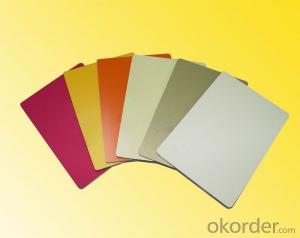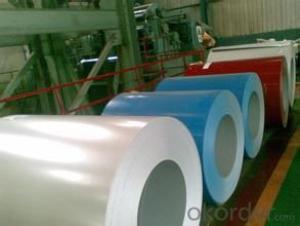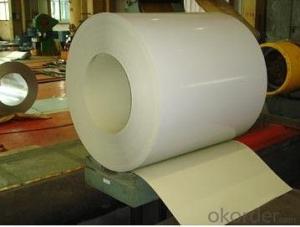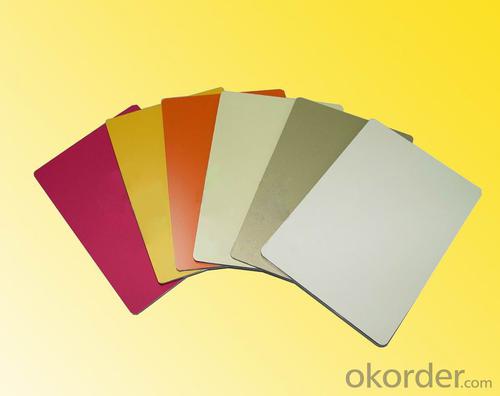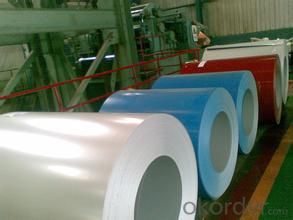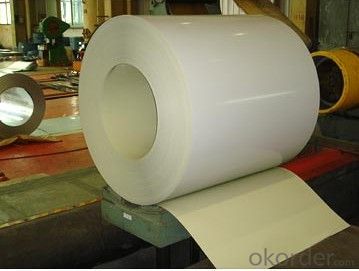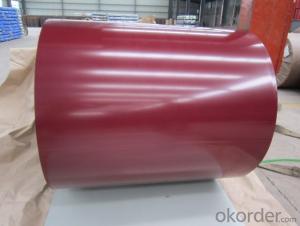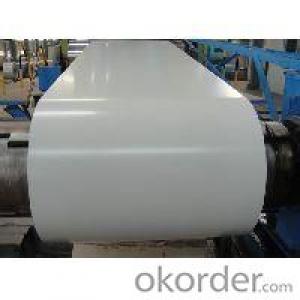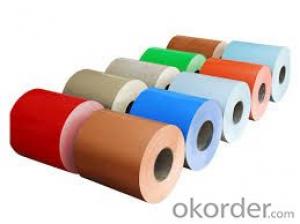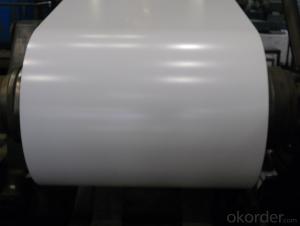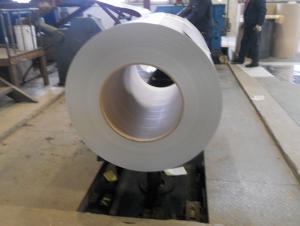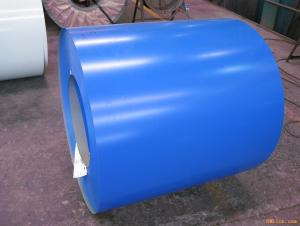Prepainted gavanized steel coil
- Loading Port:
- China Main Port
- Payment Terms:
- TT OR LC
- Min Order Qty:
- -
- Supply Capability:
- -
OKorder Service Pledge
Quality Product, Order Online Tracking, Timely Delivery
OKorder Financial Service
Credit Rating, Credit Services, Credit Purchasing
You Might Also Like
Quick Details
| Standard: | Grade: | Thickness: | |||
| Place of Origin: | Brand Name: | Model Number: | |||
| Type: | Technique: | Surface Treatment: | |||
| Application: | Special Use: | Width: | |||
| Length: | Material: | Color: | |||
| CERTIFICATE: | Coil Weight: | Zinc: | |||
| Inner ID: | Package: | Payment: |
Packaging & Delivery
| Packaging Detail: | Fully seaworthy export packing. Each coil is wrapped in water-proof paper.Fixed with steel strips |
| Delivery Detail: | WITHIN 40 DAYS |
Specifications
0.17-1.20 Galvanized Steel
ISO9001&CE
Z40~Z275G
pre-painted steel coil,gavalume coil
- Q: What are the benefits of using coated steel coils in roofing applications?
- There are several benefits of using coated steel coils in roofing applications. Firstly, coated steel coils are highly durable and provide excellent resistance against corrosion. The coatings applied to the steel coils act as a barrier, protecting the underlying metal from exposure to moisture, chemicals, and harsh weather conditions. This ensures that the roofing system remains intact and functional for an extended period, reducing the need for frequent repairs or replacements. Secondly, coated steel coils offer superior strength and structural integrity. Steel is known for its high tensile strength, and when combined with the protective coating, it becomes even more resilient. This makes coated steel coils an ideal choice for roofing applications, as they can withstand heavy loads, extreme temperatures, and strong winds without compromising the integrity of the structure. Additionally, coated steel coils are lightweight, which makes them easier to handle and install. This not only saves time and effort during the roofing process but also reduces the overall weight of the structure, minimizing the stress on the building's foundation. Furthermore, coated steel coils are available in a variety of colors and finishes, allowing for greater design flexibility. Architects and homeowners can choose from a wide range of options to complement the overall aesthetics of the building. The coatings also provide enhanced UV resistance, preventing color fading and ensuring that the roofing system maintains its appearance over time. Lastly, using coated steel coils in roofing applications is an environmentally friendly choice. Steel is a highly recyclable material, and the coatings used on the coils can be formulated to be environmentally friendly as well. This helps reduce the carbon footprint associated with construction and promotes sustainability. In conclusion, the benefits of using coated steel coils in roofing applications include durability, strength, lightweight, design flexibility, and environmental sustainability. These advantages make coated steel coils a reliable and cost-effective choice for any roofing project.
- Q: What are the main factors that affect the price of steel coils?
- The main factors that affect the price of steel coils include the cost of raw materials such as iron ore, coal, and other alloys, supply and demand dynamics in the steel industry, production and transportation costs, fluctuations in currency exchange rates, and government policies and regulations. Other factors such as global economic conditions, trade tariffs, and market competition also play a significant role in determining the price of steel coils.
- Q: How do steel coils contribute to corrosion resistance in products?
- Steel coils contribute to corrosion resistance in products through a combination of factors. Firstly, steel coils are often made from stainless steel, which contains a high amount of chromium. Chromium forms a protective oxide layer on the surface of the steel, known as a passive film, which acts as a barrier against corrosion. This passive film is self-healing, meaning that if it gets damaged or scratched, it can regenerate itself, ensuring continued protection against corrosion. Additionally, steel coils undergo a process called galvanization, where a layer of zinc is applied to the surface of the steel. This zinc layer acts as a sacrificial anode, meaning that it will corrode preferentially to the steel. This sacrificial corrosion protects the steel underneath, effectively preventing rust and other forms of corrosion from developing. Moreover, steel coils can be coated with various protective coatings, such as epoxy or polyurethane, to further enhance their corrosion resistance. These coatings provide an additional physical barrier that prevents moisture, chemicals, and other corrosive elements from reaching the steel surface. Lastly, steel coils can be manufactured with specific alloying elements, such as nickel or molybdenum, which further improve their resistance to corrosion. These alloying elements enhance the strength and durability of the steel, making it better able to withstand corrosive environments. Overall, steel coils contribute to corrosion resistance in products by utilizing stainless steel, galvanization, protective coatings, and alloying elements. By implementing these measures, steel coils ensure that products maintain their structural integrity and appearance over time, even in harsh and corrosive conditions.
- Q: How are steel coils used in the manufacturing of elevator components?
- Steel coils are used in the manufacturing of elevator components as they provide the necessary strength and durability required for various parts such as brackets, frames, and shafts. The coils are shaped, cut, and welded to create the desired elevator components, ensuring a sturdy and reliable structure that can withstand heavy loads and constant usage.
- Q: How do steel coils contribute to the oil and gas industry?
- Steel coils are an essential component in the oil and gas industry as they are used to manufacture various equipment and structures like pipelines, storage tanks, and drilling rigs. These coils provide the necessary strength, durability, and resistance to corrosion required for the harsh operating conditions in the industry. Additionally, steel coils are crucial in the transportation of oil and gas as they are used in the construction of tankers and pipelines, ensuring the safe and efficient movement of these valuable resources.
- Q: How are steel coils measured?
- Steel coils are measured by their weight and dimensions. The weight of the coil is measured using weighing scales, while the dimensions are typically measured using calipers or tape measures. The length, width, and thickness of the coil are important measurements that determine its size and suitability for specific applications.
- Q: How are steel coils used in the production of pipes and tubes?
- Steel coils are used in the production of pipes and tubes by being fed into a pipe or tube mill, where they are unraveled, formed, and welded together to create the desired size and shape of the pipe or tube.
- Q: How are steel coils used in the production of electrical transformers?
- Steel coils are used in the production of electrical transformers as they provide the core structure for the transformer. The steel coils are wound with insulated copper wire to create the primary and secondary windings of the transformer, which allow for the transformation of electrical energy from one voltage level to another. The steel coil helps to conduct and distribute magnetic flux within the transformer, ensuring efficient energy transfer and reducing losses.
- Q: Apparently, this has to do something with electrochemical cells.
- Steel wool is a mild abrasive. I don't know what it is you are cleaning, but it is probably to remove any coating or oxidisation from the metal. Maybe you are using a metal for an electrode (perhaps a steel nail pushed into a lemon?).
- Q: How are steel coils used in the production of storage tanks and silos?
- Steel coils are used in the production of storage tanks and silos as they provide the necessary structural strength and durability required for these storage structures. The coils are formed, cut, and welded into the desired shape to create the walls and roofs of the tanks and silos. This ensures that the storage vessels can withstand the weight of the stored materials and any external forces exerted on them.
Send your message to us
Prepainted gavanized steel coil
- Loading Port:
- China Main Port
- Payment Terms:
- TT OR LC
- Min Order Qty:
- -
- Supply Capability:
- -
OKorder Service Pledge
Quality Product, Order Online Tracking, Timely Delivery
OKorder Financial Service
Credit Rating, Credit Services, Credit Purchasing
Similar products
Hot products
Hot Searches
Related keywords
